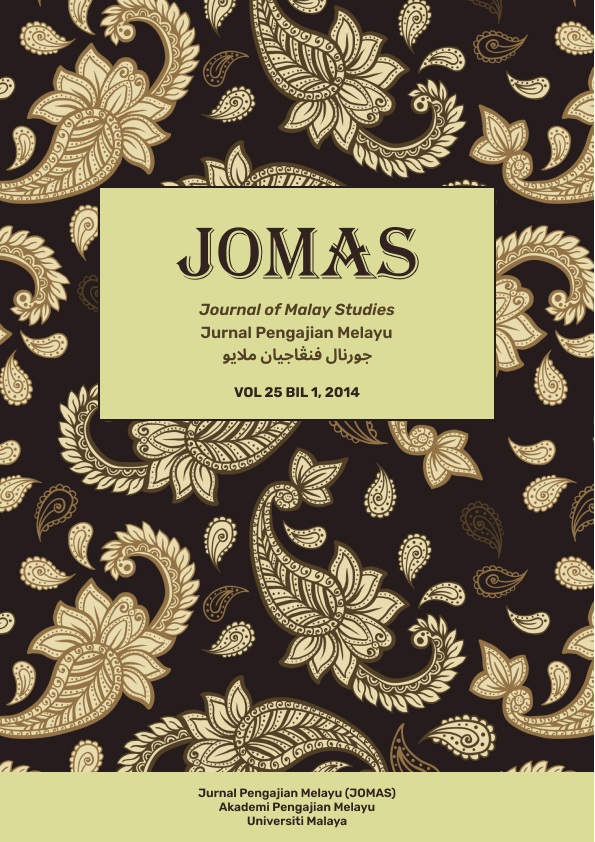KONFLIK SILANG-BUDAYA ANTARA PEKERJA MELAYU DAN PEKERJA KOREA DARI SEGI PENGELAKAN KETIDAKPASTIAN DAN ORIENTASI MASA CROSS-CULTURAL CONFLICTS BETWEEN MALAY AND KOREAN WORKERS WITHIN THE PERSPECTIVE OF UNCERTAINTY AVOIDANCE AND TIME ORIENTATION
Main Article Content
Abstract
Makalah ini meneliti konflik antara pekerja Melayu dengan pekerja Korea dalam sebuah syarikat multinasional Korea yang beroperasi di Malaysia. Apabila pekerja Melayu bertembung dengan budaya korporat Korea, pelbagai konflik berlaku akibat perbezaan nilai-nilai silang-budaya. Pendekatan dimensi budaya Hofstede (1980, 2002), Trompenaars (1997) dan Cluckhohn & Strodbeck (1961) diaplikasikan untuk mengenal pasti dan menghurai punca, proses konflik silang-budaya dan kesannya secara terperinci.
Nilai-nilai dan sikap pekerja Melayu dalam kajian kes ini memaparkan budaya dan nilai-nilai tradisional Melayu, iaitu kolektivisme yang berorientasikan hubungan antara manusia, pengelakan ketidakpastian yang rendah dan outer-directed orientation, manakala budaya korporat Korea menunjukkan kolektivisme yang berorientasikan organisasi, pengelakan ketidakpastian yang tinggi dan inner-directed orientation.
Makalah ini merumuskan bahawa konflik silang-budaya dalam kajian kes ini disebabkan oleh perbezaan budaya dan kekurangan pemahaman terhadap kepelbagaian budaya. Dengan itu, makalah ini mengesyorkan persefahaman dan budaya bertolak ansur sebagai penyelesaian konflik silang-budaya.
Kata kunci: konflik silang-budaya, nilai-nilai Melayu, budaya korporat Korea, pengelakan ketidakpastian, orientasi masa.
This paper scrutinizes cross-cultural conflicts between Malay and
Korean workers in a Korean multinational company operating in
Malaysia. The cross-cultural value disparity between Malay culture
and Korean corporate culture has caused various conflicts. To identify
the root cause, sources of cross cultural conflicts, and their impact, this
paper utilizes cultural dimension developed by Hofstede (1980, 2002),
Trompenaars (1997), and Cluckhohn & Strodbeck (1961).
The values and attitudes of Malay workers described in this
case study reflect their traditional culture and values, constituting
relationship-oriented collectivism, low uncertainty avoidance and
outer-directed orientation. On the other hand, Korean corporate
culture reflects values of organization-oriented collectivism, innerdirected
orientation and high uncertainty avoidance.
This paper concludes that the cross-cultural conflicts covered
in this case study were caused by value differences and lack of mutual
understanding. This paper therefore proposes that in order to reduce
cross-cultural conflicts, an organization should enhance mutual
understanding between cultures, and foster a more open corporate
culture which is suitable for workers of diverse cultures.
Keywords: cross-cultural conflicts, values of Malay, Korean corporate culture, uncertainty avoidance, time orientation.

